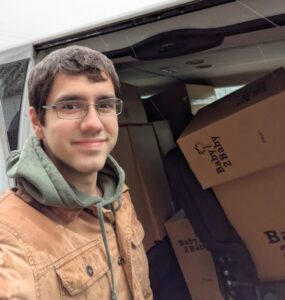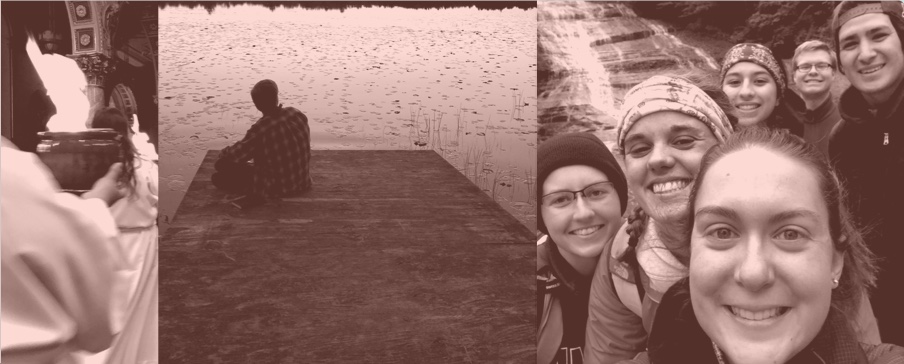Simply Love

It is difficult to pin down exactly what an ‘average’ day is for me. Once a month, I help distribute about fifteen thousand diapers to one hundred and fifty families. This is my only scheduled day, one a month, that’s it. Every other day of the month is a piecemeal of appointments that are scheduled in the days, and sometimes hours, leading up to them. For example, on a given Monday this past month I took four individuals to a hiring fair, delivered some diapers, updated a family’s national grid payment plan, and delivered two car seats. This apparent chaos is a consequence of the type of work I do. It reminds me of my last job, working in tech support. I worked at the front desk as first-level support. First-level support is the customer’s first point of contact when getting help. We saw everything from smashed computers, to viruses, to waterlogged phones. It was our job to either fix the issue or direct the customers to the correct department for the help they needed. The departments behind us, while all doing great work, didn’t see the same assortment of issues we did because by the time they had received the customer, the technical issue had been identified and the customer had already been filtered based on that issue.
What does tech support have to do with service? Well, without realizing it, there were already a thousand filters in place before a customer reached our desk. The individual had to be a University of Dayton student. They both needed to have been accepted to the university and to have had the money to attend. Now in Syracuse, New York, working with the refugee population, there are far fewer filters present than at my desk job. In a way, I am doing exactly the same work as I did at the University of Dayton: taking a wide range of random issues and either helping to solve them or directing the individual to the right government agency that can help them.
However, this analogy only stretches so far – and when it stretches, it breaks badly. The quality of my work in technical support was characterized by statistics, one of which was the first level closure percentage. This is the percentage of issues I personally resolved at the desk that didn’t need to be redirected to another department. For four years, this was the measure of my success at work. Now serving with refugees in Syracuse, this drive to solve issues has instead been a source of daily frustration. The hiring fair from the aforementioned Monday was the first real work opportunity for four refugees after months of job searching. We arrived at the start time, 9:00 am, and the building was already packed. Of the four refugees who came, only two walked away with jobs, and those were the last two jobs available from the event. The hiring fair officially started at 9:00 am and they had filled every position by 9:05 am. Fast forward one month, and one of the individuals hired has been fired and the other’s husband is now unemployed. Neither can support their family with their current salary or lack thereof. My days often feel like this – one step forward, two steps backward.
The daily flow of service has forced me to readjust these subconscious evaluations of myself, sometimes in the painful way that growth elicits. I have laughed at myself some afternoons; after repeatedly curtailing my goals as the day progresses, I find I have accomplished little to nothing tangible by the time I come home. What lesson has this left me with? Well I have come to one conclusion: If I start the day with any goal other than to simply love, I will be disappointed. This isn’t to say that accomplishing tangible tasks is bad, but if I place my sense of accomplishment on it, I am destined for burnout.
I know this because it happened. When I woke up and the thing I was most excited for that day was going back to bed, I could recognize there was an issue. Fortunately, around the same time I experienced this burnout, I fell ill and couldn’t leave my room for two days. While physically I felt terrible, this gave me the time to mentally piece myself together and make changes to my approach to service. Much of the answer came from my community. They couldn’t take the illness away, they weren’t God. However, they could send me memes on my phone or get me snacks. It was I who needed to deal with the sickness but their love gave me the mental strength to make it a little more tolerable. Where I stand now, that seems to be where the answer lies. The end goal of my service isn’t to get someone public assistance or help treat their chronic illness through doctors’ visits. It is to spread joy and make them feel loved. Sure, doctors visits and meetings with public assistance are great ways to do that, but so also is simply being present and loving.
Categories: General
← Back to Stories

